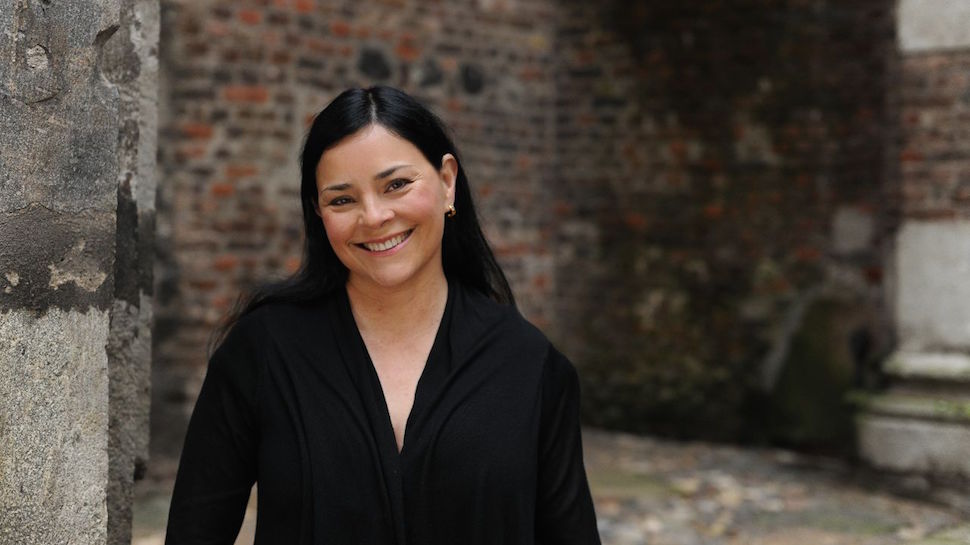The Nerdist was able to interview Diana Gabaldon when she closed out the Outlander costume display at The Grove in Los Angeles, California. While Diana does compliment Ronald D. Moore and company for doing a “fabulous job” with season one of Outlander, the conversation between Diana and the interviewer goes a bit more in depth on a few points than other interviews as of late. She discusses thwarting the common hero/heroine storyline in historical fiction and how they approached rape.
N: I’ve been having this rape conversation for weeks and I’m admittedly sort of tired of it, and yet there’s a lot of good that’s coming out of it.
DG: Oh I know, but that’s why you don’t worry when you write something that’s controversial. It’s a big nuisance in media: you have to deal with it over and over and over — which you’ve noticed — but at the same time, very valuable stuff comes out of it along the way. And not just in terms of the public conversation, but in terms of people’s private response. And that I hear a lot of because people write to me all the time and they tell me “this is what I felt as a result of this.” The bottom line for me is I get lots and lots and lots of mail, and I have never, ever — not once! — had somebody write to me saying, “I’ve been raped and this was terrible and it brought it all back and how could you do such a terrible thing?” Never, not once. On the other hand, I’ve had a lot of mail from people saying, “I was raped and reading your book, sometimes the scenes were difficult, but it was cathartic. It was so honest, that meant a lot to me. And further, you indicated that recovery is possible, that there was healing, there was hope.” And that just made me feel so validated and understood. It made me feel good. And now I’m thinking, OK: I guess this is the right way.
N: It’s such a tricky thing and it’s always going to be one of those things where people vacillate between the lines of what’s appropriate and what’s not, but it’s so important to have that discussion, based on a mistake or somebody doing it right. It’s valuable in all regards.
DG: Yeah, well, as a writer of fiction, I don’t think that the notion of appropriateness applies, ‘cuz how would you know?
N: You don’t really.
DG: In terms of popular culture and media and entertainment and so forth, everybody says “Who is the audience for this?” I didn’t really care who the audience was. The audience was me. And since that worked, I’ve always proceeded on that assumption: I don’t care what the audience thinks. Basically, it’s going to be the way I think it should be written. But the other thing is that there is no audience, there is no reader. If you’re going to have more than one person read your book, they’re going to have totally different opinions and responses. No person — no two people — read the same book. It’s always based on their perceptions, their background, their experiences, their expectations of the moment. You know, what side of the bed they got up on that day. I read some books and I thought, “This is better than sliced bread!” and a month later I couldn’t remember thinking about it. And I’ve read others that were kind of a slog and I’ve put them down and come back six months later thinking, “Wow, this is great.” So, you know, things change all the time.
Read the entire interview (well worth it) at The Nerdist.
Source: The Nerdist
